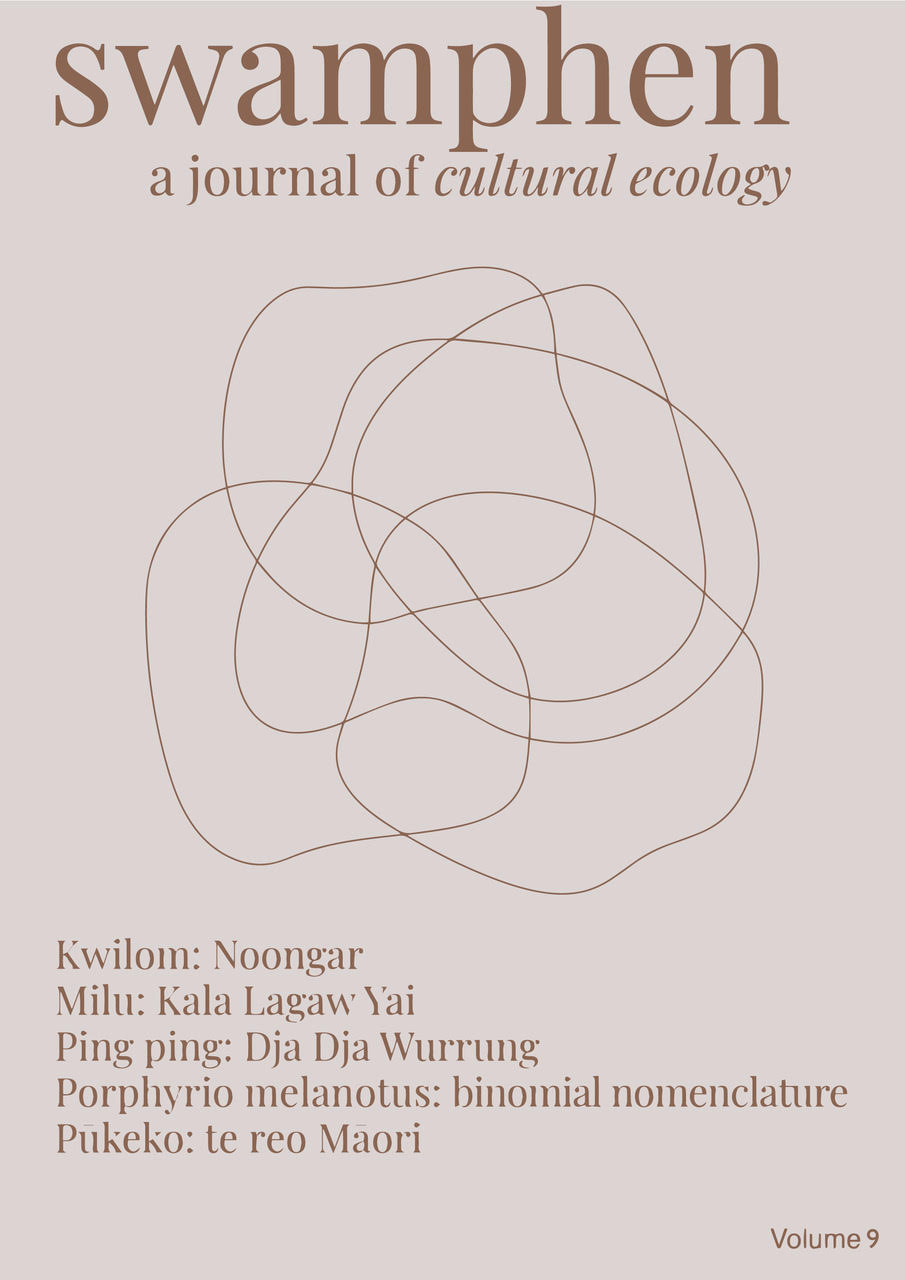Moving Beyond a Strange Spectatorship
Stories of Nonhuman Road Trauma in Australia
DOI:
https://doi.org/10.60162/swamphen.9.17542Keywords:
roadkill, nonhuman, ecocriticism, Australian literature, anthropocene noirAbstract
What can nonhuman road trauma, more commonly referred to as ‘roadkill’, teach us about ecological crises and human culpability? Incidents of nonhuman road trauma could be described as strange encounters, revealing the shared trauma of the nonhumans and humans involved while simultaneously highlighting the supposed inevitability of such events. I argue that the choice to check the rearview mirror – to exhibit attentiveness and care in self-reflection – is an act of radical correspondence with the more-than-human. Such correspondence functions as a kind of non-spoken letter to both nonhumans and other human drivers; a letter calling for acts of care and attentiveness that acknowledge the nonhuman experience, mourn losses, and possibly instigate radical change when it comes to how nonhuman road trauma is thought about now and hopefully avoided in future. In her work on the ‘Anthropocene noir’, Deborah Bird Rose speaks of ‘the Anthropocene parallel’ in which humans are spectators of the suffering of nonhumans, and also spectators of a suffering that is our own. Written as both an essay and a personal log of my own experiences with nonhuman road trauma, this work draws on Rose’s idea in an attempt to reconcile the concept of what I term a ‘strange spectatorship’, in which humans observe, are implicated in, and turn away from the phenomenon of nonhuman road trauma and what such trauma reveals about human-nonhuman relations, particularly for settler-colonial Australians. Reflecting on anecdotal experiences as well as the representation of roadkill in Australian literature, I explore the strangeness perceived in how settler-colonial Australians are both actors and spectators in nonhuman road trauma. I grapple with the idea of such trauma as a means of better understanding the settler-colonial impact on Australian natural environments, and the consequences for both humans and nonhumans if we do not better address the ethical and ecological consequences of our modern road infrastructure.
Downloads
Published
Issue
Section
License
Authors who publish with this journal agree to the following terms:- Authors retain copyright and grant the journal right of first publication with the work simultaneously licensed under a Creative Commons Attribution License that allows others to share the work with an acknowledgement of the work's authorship and initial publication in this journal.
- Authors are able to enter into separate, additional contractual arrangements for the non-exclusive distribution of the journal's published version of the work (e.g., post it to an institutional repository or publish it in a book), with an acknowledgement of its initial publication in this journal.
- Authors are permitted and encouraged to post their work online (e.g., in institutional repositories or on their website) prior to and during the submission process, as it can lead to productive exchanges, as well as earlier and greater citation of published work (See The Effect of Open Access).

